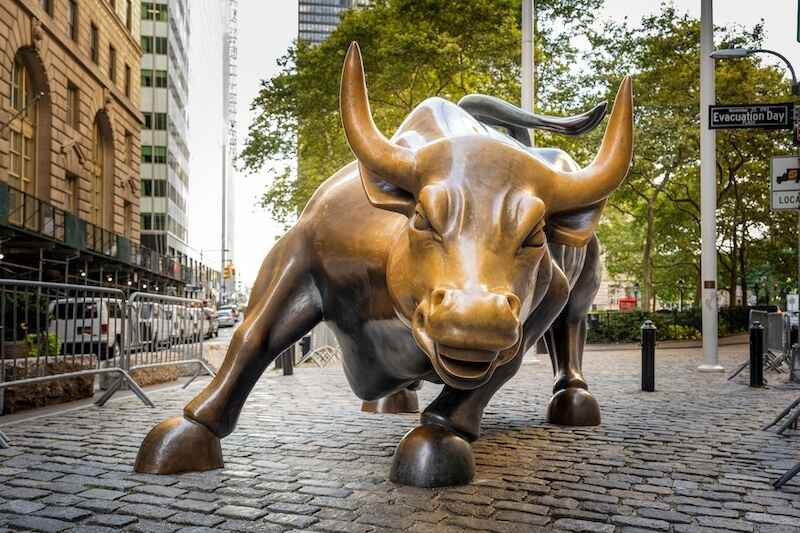Build and Protect More Than Just Your Wealth With Crypto
Robert Ross|February 28, 2025
I remember being blown away by a new software program called Napster in the late ’90s.
It allowed anyone in the world to easily send music to someone else over the internet.
While Napster was eventually shut down due to copyright infringement, its legacy has lived on as the first widely used application of peer-to-peer software. This meant that folks could exchange music outside the traditional brick-and-mortar system.
It upended the industry and forced it into the digital age.
A decade later, a mysterious figure called Satoshi Nakamoto applied the same idea to his project: Bitcoin.
And the concept of money – and freedom – changed forever.
“Peer-to Peer” Money
Similar to how Napster enabled folks to share music outside the traditional brick-and-mortar CD stores, Bitcoin has allowed people to send money outside the traditional banking system… without the help of a financial intermediary.
Cryptocurrency is just like the dollar bill (a medium of exchange) you might have in your wallet right now. But unlike U.S. dollars, euros or loonies that are backed by governments and assets such as gold… cryptocurrencies are reinforced solely by computer code on something called a “blockchain.”
That makes Bitcoin a “state-less” or “bank-less” money.
It should thus be no surprise that Bitcoin – the world’s first cryptocurrency – was born out of the 2008 global financial crisis. The Bitcoin white paper – or thesis statement for a cryptocurrency – was first published in October 2008. It was titled “Bitcoin: A Peer-to-Peer Electronic Cash System.”
This landmark paper was published a mere month after the collapse of Lehman Brothers during the subprime mortgage crisis.
This tumultuous period shook many people’s faith in the global banking system, as the government blatantly cherry-picked winners (Goldman Sachs) and losers (Bear Stearns, Lehman Brothers).
And with the unprecedented money printing that followed via a new Federal Reserve policy known as “quantitative easing,” a fresh approach to the concept of money was not only needed… but a natural progression.
And Bitcoin was the first step.
An Elegant Design That Continues to Perform
Unlike fiat currency that can be created out of thin air, only 21 million Bitcoin will ever exist.
This is known as a “hard cap.” It fundamentally distinguishes Bitcoin from fiat currencies like the U.S. dollar. This system protects it from any government or central bank diluting Bitcoin’s value by “printing” more Bitcoin.
Bitcoin has thus been a godsend for people in countries experiencing issues with their currency. When Venezuela’s currency was experiencing hyperinflation, many citizens converted their assets to U.S. dollars or Bitcoin to preserve their purchasing power.
The same thing happened in Turkey, Egypt, Nigeria, Argentina, Lebanon and Pakistan… all countries where their citizens’ wealth is subject to the whims of tyrannical governments.
And it worked. Just look at Bitcoin’s price when priced in each country’s native currency:

Bitcoin represents freedom… especially for those fleeing authoritarian governments. A big reason is that it’s stored at a digital “address” – a series of numbers. People have converted their cash assets to Bitcoin and simply “remembered” their Bitcoin addresses as they fled their native countries.
Prior to Bitcoin, people had to either convert their cash to other goods (i.e., gold, etc.) and flee the country or simply leave everything behind. Bitcoin allows people to hold on to their wealth more seamlessly and with greater protection.
And it’s not the only revolutionary act made possible by Bitcoin.
Censorship-Free Money
Another facet of Bitcoin’s freedom is its resistance to censorship.
Traditional financial transactions can be blocked or frozen by governments or financial institutions for many reasons, sometimes unjustly.
Bitcoin transactions, however, are censorship-resistant. No single entity controls the network, making it nearly impossible for any party to prevent transactions from being confirmed.
This aspect is particularly crucial for activists, journalists and others in restrictive environments who rely on financial support from international donors.
Bitcoin is more than just a digital currency. It’s a movement toward financial sovereignty.
Folks all over the world have been increasingly subject to the whims of governmental and financial institutions’ policies. Bitcoin offers a way to reclaim control over your financial destiny.
It empowers users with personal ownership of their assets, protected by cryptographic security, without the need for intermediaries. This shift not only challenges the traditional financial ecosystem but also prompts a reevaluation of the concept of money in the digital age.
In a world grappling with financial instability, rampant inflation and increasing authoritarianism, Bitcoin stands out as a symbol of resistance and liberation.
Its peer-to-peer nature, capped supply, and global accessibility offer a viable alternative to traditional financial systems, especially for those most in need of financial freedom.
Bitcoin is not just an investment. It’s a stake in a more equitable and liberated financial future.
Thus, for millions around the world, Bitcoin isn’t just about potential returns. It’s about reclaiming power over their financial lives in a less-free world.
Note: If you want access to the kind of freedom the cryptocurrency market offers… then listen up. In a matter of weeks, a new crypto bull market will kick off… and it could be the biggest one yet. I’ve pinpointed FIVE small cryptocurrencies that are in position to soar… and it all starts on April 22. Get yourself into position now.



